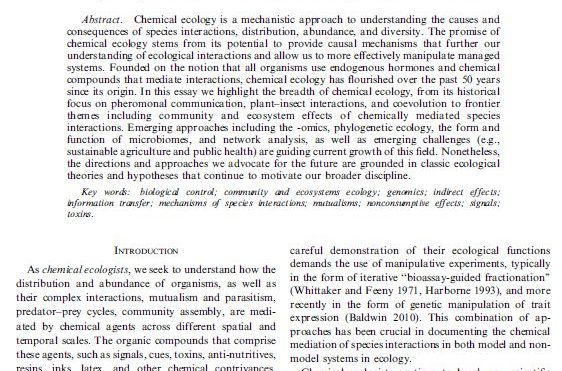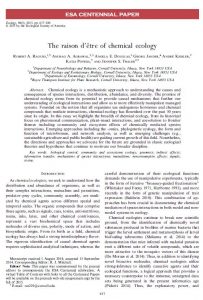Chemical ecology is a mechanistic approach to understanding the causes and consequences of species interactions, distribution, abundance and diversity. The promise of chemical ecology stems from its potential to provide causal mechanisms that further our understanding of ecological interactions and allow us to more effectively manipulate managed systems. Founded on the notion that all organisms use endogenous hormones and chemical compounds that mediate interactions, chemical ecology has flourished over the past 50 years since its origin. In this essay, we highlight the breadth of chemical ecology, from its historical focus on pheromonal communication, plant–insect interactions, and co-evolution to frontier themes including the community and ecosystem effects of chemically mediated species interactions. Emerging approaches including the ‐omics, phylogenetic ecology, the form and function of microbiomes, and network analysis, as well as emerging challenges (e.g. sustainable agriculture and public health) are guiding current growth of this field. Nonetheless, the directions and approaches we advocate for the future are grounded in classic ecological theories and hypotheses that continue to motivate our broader discipline.
Region: Not specific
Date published:
2015
Published by:
Ecology
Type of resource:
Journal article
Resource topic:
Ecology
Project/Programme: Not specific
Pest/Disease: Not specific
Pages:
14
File type:
External link (162 KB)




